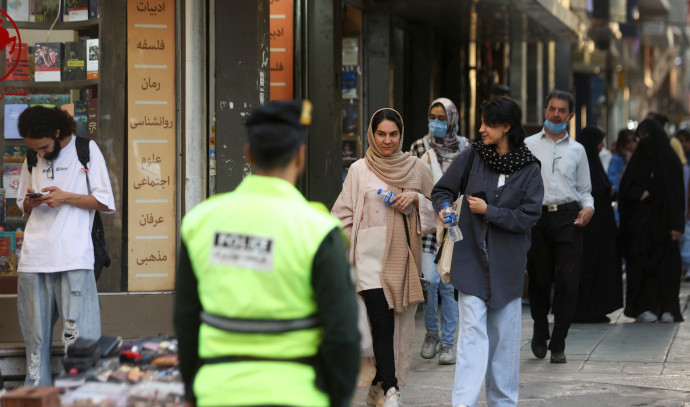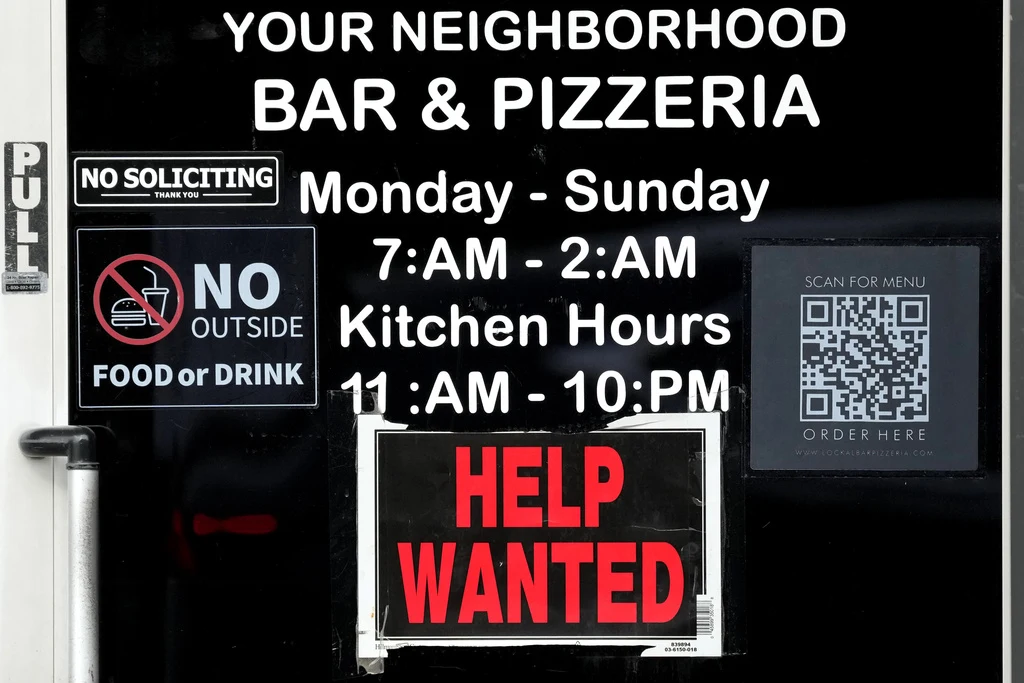Iran has begun intensifying its crackdown on hijab restrictions in several cities in the past week, with violent arrests reported across the country by opposition groups and human rights agencies.
The intensified assault on women across Iran comes after the regime announced the “Nour Project.” The project, aimed at “dealing with anomalies,” has involved a heavy presence of the “Morality Police” in several cities since this past weekend.
According to Iran’s Mehr News Agency, police have been instructed to focus on “positive behaviors” and avoid using “negative behaviors” as much as possible. Reports from Iran suggest the crackdown has been violent, including sexual harassment, beatings, the use of tasers, widespread arrests, and breaking car windows, among other measures.
The intensification of hijab enforcement came just a week after Iranian Supreme Leader Ali Khamenei said that maintaining hijab wearing was of the “utmost importance” and accused foreigners of “hiring” women to not wear hijab.
One video published on social media showed a woman struggling against the “Morality Police” as she was shoved into a van.
Brutal Crackdown Signals Renewal of War Against Women in Iran.Look at how the Hijab Police savagely arrest an unarmed woman simply because she hasn’t covered her hair, dragging her into a police van. This order came after the leader of the Islamic Republic, @khamenei_ir,… pic.twitter.com/eU2ZKxBXLG
— Masih Alinejad ️ (@AlinejadMasih) April 17, 2024
Dina Ghalibaf, a journalist and student at Tehran’s Beheshti University, was arrested from her home on Tuesday after posting on X that she had been detained and sexually assaulted by “Morality Police” at the Sadeghiyeh metro station in Tehran earlier in the week.
Ghalibaf said the Morality Police officers violently detained her and tased her while she was trying to access the metro in a post on Monday. She added that one of the officers made insulting comments about Mahsa Amini and women in general. On Tuesday, she was taken from her home to an unknown location. Ghalibaf’s X account has since been suspended. The Iranian Teachers Union reported on her arrest as well.
Iran International reported on Wednesday that the “Morality Police” have been using plainclothes officers to surround them while they arrest women in order to prevent crowds from interfering.
به صدای شوکر که به جان زنان شجاع این سرزمین میزنند، گوش کنید. جان زنان این سرزمین در خطر جدی است.#حجاب_تحمیلی #گشت_ارشاد #دادبان pic.twitter.com/wq0buRFc8y
— دادبان (@dadban4) April 16, 2024
The wife and daughter of Ahmadreza Abedzadeh, an Iranian soccer goalkeeper, were also arrested in Tehran on charges of violating hijab regulations, according to the Iranian Fars News Agency. Iranian media claimed the two were “causing tensions and clashing with officers.”
Abedzadeh had expressed some support for protesters during the wave of anti-government protests that swept Iran in late 2022.
Businesses where women are seen violating hijab laws will also be shuttered if women are seen without hijab more than once there.
Iranian journalist and activist Masih Alinejad referenced the renewed crackdown in a post on X, calling on people to “Stand against this silent war against Iranian women.”
“Women are being subjected to beatings and sexual harassment simply for not wearing hijabs,” Alinejad wrote. “This started on Saturday, right after Ali Khamenei ordered the police to impose hijab on women at any cost. When they say ‘at any cost,’ it means police can easily kill women for not wearing hijab, the way they did (sic.) killed #MahsaAmini.”
Enforcement of hijab laws intensified over past year
The Islamic regime in Iran has been gradually intensifying enforcement of hijab laws since they were somewhat relaxed in light of nationwide protests that swept Iran after Mahsa Amini, a Kurdish-Iranian woman, was killed by “Morality Police” in Tehran.
Amini’s death sparked intense nationwide demonstrations last September, commonly referred to as the “Woman, Life, Liberty” (“Jin, Jiyan, Azadî” in Kurdish) protests, which continued in full strength for months on end.
For the past year, the Iranian parliament has been working on a new law that would intensify the penalties for not wearing the hijab. However, the law has been held up in the Guardian Council, a group of experts in Islamic law and jurists tasked with approving all legislation.
Last year, the regime instituted new measures to enforce hijab laws, including surveillance cameras.
In recent months, plainclothes agents known as “hijabban” have been seen in metro stations in Tehran, enforcing hijab laws.
In January, a Kurdish-Iranian woman named Roya Heshmati was whipped 74 times after a photo of her was published a few months beforehand in which she was seen not wearing a hijab in Tehran.
Despite the continued crackdown, Iranian women have increasingly been seen in public without the hijab.







